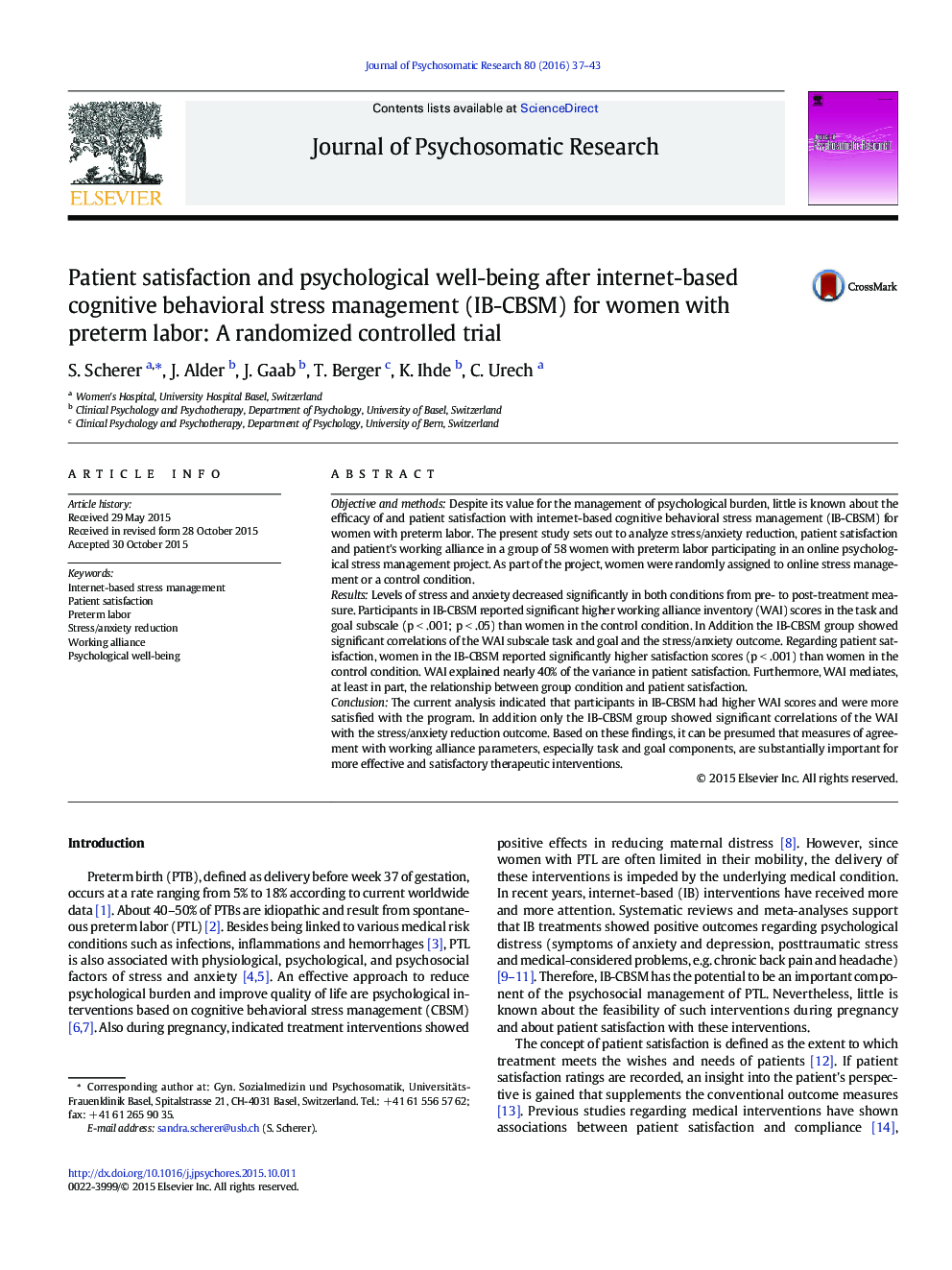| Article ID | Journal | Published Year | Pages | File Type |
|---|---|---|---|---|
| 949173 | Journal of Psychosomatic Research | 2016 | 7 Pages |
•PTL is, among other causes, associated with psychological, psychobiological and psychosocial factors of stress.•The potential of psychological stress reducing interventions in pregnancy has not been systematically assessed.•Analysis of patient satisfaction, psychological well-being and working alliance after IB-CBSM in a group of women with PTL.•Working alliance, especially task and goal, is important for effective and satisfactory therapeutic interventions.•In guided self-help approaches the fit between the intervention program and the needs of the participants is essential.
Objective and methodsDespite its value for the management of psychological burden, little is known about the efficacy of and patient satisfaction with internet-based cognitive behavioral stress management (IB-CBSM) for women with preterm labor. The present study sets out to analyze stress/anxiety reduction, patient satisfaction and patient's working alliance in a group of 58 women with preterm labor participating in an online psychological stress management project. As part of the project, women were randomly assigned to online stress management or a control condition.ResultsLevels of stress and anxiety decreased significantly in both conditions from pre- to post-treatment measure. Participants in IB-CBSM reported significant higher working alliance inventory (WAI) scores in the task and goal subscale (p < .001; p < .05) than women in the control condition. In Addition the IB-CBSM group showed significant correlations of the WAI subscale task and goal and the stress/anxiety outcome. Regarding patient satisfaction, women in the IB-CBSM reported significantly higher satisfaction scores (p < .001) than women in the control condition. WAI explained nearly 40% of the variance in patient satisfaction. Furthermore, WAI mediates, at least in part, the relationship between group condition and patient satisfaction.ConclusionThe current analysis indicated that participants in IB-CBSM had higher WAI scores and were more satisfied with the program. In addition only the IB-CBSM group showed significant correlations of the WAI with the stress/anxiety reduction outcome. Based on these findings, it can be presumed that measures of agreement with working alliance parameters, especially task and goal components, are substantially important for more effective and satisfactory therapeutic interventions.
